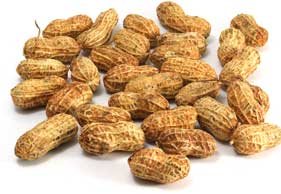Don’t worry! Peanut butter offers a nutrient-rich
addition to all snacks, meals and desserts. In this day and age of energy bars,
protein powders and other quick fixes, many athletes forget about real foods
such as peanut butter. It’s tasty, inexpensive, satisfying and nourishing!
The rule is to consume an average of two tablespoons
of peanut butter if you want to stay on the healthy end of the peanut butter
consumption scale. That will supply you with an average of 9g of protein. This
is why peanut butter on wholegrain toast, for example, makes for a great
breakfast or pre-workout snack. You can also incorporate two tablespoons in a
smoothie with ice, low-fat milk, a banana and a dollop of honey.
HEALTHY FATS
Peanut butter contains both good unsaturated fats and
bad saturated fats. Fortunately, the majority of fat in peanut butter is
unsaturated. The recommended two tablespoons of peanut butter provides about
190 calories in total, of which 140 is considered to be fat calories, or about
16g of total fat. Of these 16g of fat, about 13g are from unsaturated fats and
3g are from saturated fats. This means that it is actually a great source of
healthy fats. A healthy body needs a good supply of healthy fats consumed in
moderation, and like olive oil and avocado, peanut butter is a good source.
A two-tablespoon serving of peanut butter will also
supply you with 3g of fibre. The fibre in food contributes to a feeling of
fullness that can help with maintaining a healthy body weight, and also
promotes regular bowel movements by maintaining a healthy gut environment. By
enjoying peanut butter on one slice of wholegrain bread, you can contribute 6g
to 8g of fibre towards the recommended target of 20g to 35g per day.
CHOOSING RIGHT
?
All natural (organic)
peanut butter is a good choice if you want to minimise your intake of unhealthy
fats and preservatives. Organic peanut butter usually has peanuts as the main
ingredient, while others (non-organic) can sometimes contain other artificial
ingredients to enhance the taste.
?
The sugar content on
the peanut butter should be one of the decisive factors. Commercial peanut
butter brands can sometimes contain a lot of added sugar to enhance flavour.
?
Look out for the
sodium content on the ingredients list. Again, natural brands usually have less
sodium, and too much sodium can also mask the nutty flavour.
So, don’t be shy to use the power of peanut butter! It’s
one of the easiest ingredients you can use and it can definitely give you a
little push just before a run. Just make sure you stick to the two tablespoon ‘rule’
and your body will benefit.


